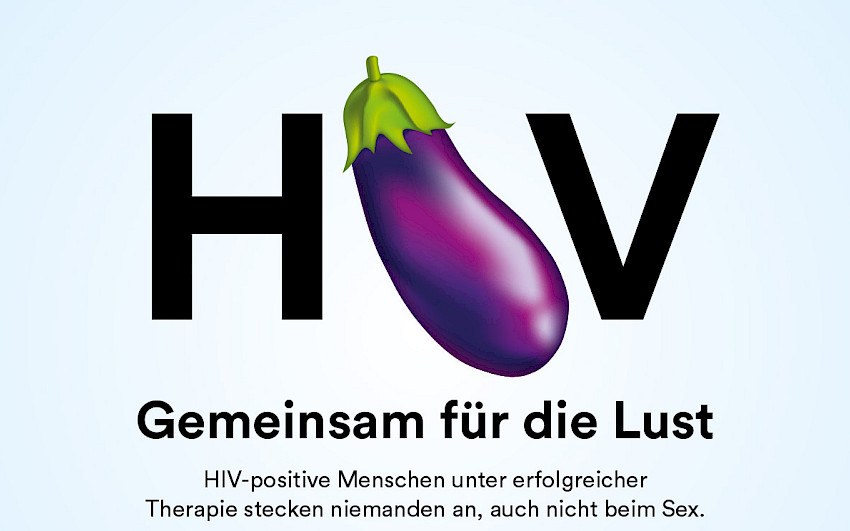Therapy as protection
If you are HIV-positive and in successful treatment, with an undetectable viral load, you cannot pass the virus on sexually. Effective HIV therapy thus protects against transmission.

How reliable is the protection the drugs offer?
Studies have shown that effective HIV therapy protects against the transmission of HIV at least as reliably as condoms. There is no such thing as 100% reliability in either case, however, as things can go wrong even if you use condoms, but both methods offer a very high level of protection.
How do HIV drugs offer protection?
HIV drugs prevent the virus replicating in the body of someone living with HIV. If the therapy is working well, after a certain time it will not be possible to detect HIV in the person's blood. This is referred to as a viral load which is below the detection threshold. There will be very little – if any – of the virus detectable in sperm, vaginal secretions, other bodily fluids or in the body's mucous membranes either. At this stage, it is highly unlikely that HIV will be passed on to sexual partners.
What conditions must be met to ensure that therapies offer protection?
The viral load must have remained below the detection threshold for at least six months, and the person with HIV must be taking their medication regularly. Blood tests must be done every three months at a medical practice specialising in HIV to check that these conditions continue to be met.
Can I really feel safe if the conditions are met?
The crucial question here is whether or not the conditions really are met. If you are HIV-positive, you can discuss this with your doctor.
If you are HIV-negative, or you have not been tested, you have to talk about things with your HIV-positive partner. Then you can decide whether or not you trust the other person, and might want to have unprotected sex. Couples should have sex without a condom only if both are well informed and comfortable with their joint decision.
The decision is more difficult where casual sex is concerned, because in most cases, there will not be the same relationship of trust. The Swiss AIDS Federation recommends using condoms if you are at all unsure.
Can the viral load rise again?
This can happen above all if the drugs are not taken regularly. There are other reasons that the effectiveness of therapies may decline after a certain time. That is why it is important to check the viral load regularly, generally every three months.
Can the viral load rise if someone with HIV also has another sexually transmitted infection?
That's possible, but therapy will keep the increase to a minimum, so that HIV transmission can still be virtually ruled out.
Isn't it safer to continue using condoms in addition to the protection given by the therapy?
Both methods together offer the maximum level of protection, although the protective effect of condoms and HIV therapy in themselves is already very high.
What are the arguments for continuing to use condoms?
Condoms reduce the risk of contracting another sexually transmitted infection, such as syphilis, gonorrhea or chlamydia.
For more information: HIV-positive and no longer infectious?
